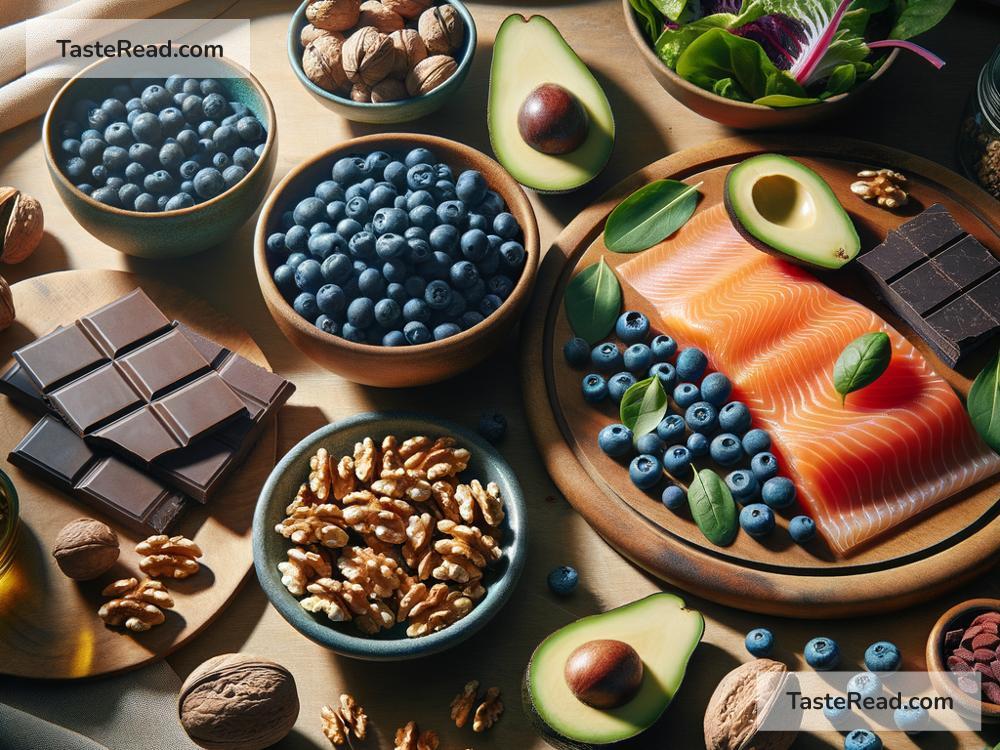Foods That Improve Memory: Boost Your Brain with the Right Nutrition
Have you ever forgotten someone’s birthday or struggled to recall a small detail from a conversation? You’re not alone! Our memory, like the rest of our body, requires fuel to function at its best. The brain is an incredible organ, and just like the rest of your body, it benefits from a healthy lifestyle and mindful eating. Some foods are especially good for improving memory and keeping your mind sharp. Let’s dive into how your diet can help your brain and the delicious foods you should include.
Why Does Food Matter for Memory?
Before we jump into the list of memory-boosting foods, let’s understand why nutrition plays such a big role in cognitive health. The brain uses up a lot of energy—around 20% of the body’s total energy. It needs the right vitamins, minerals, and antioxidants to function efficiently. When you eat unhealthy food, such as processed snacks or sugary treats, your brain might not get the nutrients it needs, which can affect memory, focus, and even mood.
Certain foods contain compounds that reduce inflammation, promote better blood flow, or aid in the communication between brain cells. Adding these into your diet can help protect your memory and even lower the risk of diseases like Alzheimer’s. Now, let’s explore which foods are the all-stars of memory improvement.
1. Fatty Fish – Omega-3 for Brain Power
Fatty fish, such as salmon, mackerel, trout, and sardines, are rich sources of omega-3 fatty acids. These fats are essential for brain health and memory. Omega-3s help build and repair brain cells, and they’re linked to improved cognitive function.
Studies have shown that people who consume plenty of omega-3s tend to have sharper memories and slower age-related mental decline. If fish isn’t your thing, consider alternatives like flaxseeds, chia seeds, or walnuts, which also contain omega-3s.
2. Blueberries – Tiny but Mighty
Blueberries are often called a “superfood” because they’re packed with antioxidants. These tiny fruits contain compounds known as flavonoids, which help reduce inflammation and support better communication between brain cells.
Eating blueberries regularly can improve memory, delay brain aging, and enhance learning abilities. They make a great snack or can be added to smoothies, yogurt, or oatmeal for a nutritious sweet treat.
3. Leafy Greens – The Power of Vitamins
Vegetables such as spinach, kale, and broccoli are full of vitamins like K, C, and E, as well as folate, all of which support brain health. These nutrients help protect against oxidative stress, a process that may harm brain cells over time.
A study found that older adults who regularly ate leafy greens had memory skills comparable to people much younger than them. Make greens a part of your meals by adding them to casseroles, salads, or stir-fries.
4. Walnuts – Nuts for Your Brain
Many nuts are excellent for your brain, but walnuts stand out because they’re loaded with healthy fats, antioxidants, and vitamin E. Vitamin E has been linked to protecting your brain from age-related decline.
A handful of walnuts as a snack or added to a salad or yogurt is not only satisfying but also contributes to a sharper mind.
5. Whole Grains – Steady Energy for Focus
Whole grains like oats, brown rice, quinoa, and whole-grain bread are excellent for providing your brain with steady energy. They’re rich in complex carbohydrates and vitamins like B6, which aid cognitive health.
Unlike sugary snacks, which lead to energy spikes and crashes, whole grains supply slow-burning fuel that improves focus and concentration. Swap white bread and pasta for their whole-grain versions to make a healthy switch.
6. Turmeric – A Golden Spice for Memory
Turmeric is a bright yellow spice commonly used in dishes like curries. It contains curcumin, a compound with powerful anti-inflammatory and antioxidant effects. Curcumin can enhance memory and may help decrease the risk of Alzheimer’s.
Adding turmeric to soups, rice, or tea is an easy way to include this brain-friendly spice in your diet.
7. Pumpkin Seeds – A Snack Full of Iron and Zinc
Pumpkin seeds are an underrated food for brain health. They’re packed with micronutrients such as iron, magnesium, and zinc, which are all vital for brain function. Zinc is particularly important for memory and cell communication.
Keep some pumpkin seeds on hand for an easy snack or sprinkle them over salads or oatmeal for crunch and nutrition.
8. Eggs – Choline for Brain Development
Eggs are a great breakfast option and good for memory. They contain choline, a nutrient that aids the production of neurotransmitters, the chemicals your brain uses to send signals. Eggs also contain B vitamins, which help delay mental decline.
Enjoy eggs boiled, scrambled, or as part of a veggie-packed omelet.
9. Dark Chocolate – Treat Your Brain
Yes, chocolate can be good for you! Dark chocolate, in particular, contains flavonoids and caffeine, which improve focus and memory. Choose chocolate that’s at least 70% cocoa for maximum benefit.
A small square of dark chocolate as an after-meal treat can help satisfy your cravings and boost your brain at the same time.
Final Thoughts: Eat Well, Think Well
It’s amazing how small changes to your diet can make a big difference in your brain’s health. While including these memory-boosting foods in your meals is a good step, it’s also important to stay hydrated, get enough sleep, and stay physically active. These habits work together to keep your mind sharp and your memory strong.
So why not start today? Enjoy a meal with salmon, grab some blueberries as a snack, or sprinkle turmeric into your soup. Your brain—and your future self—will thank you for it. After all, a healthy diet isn’t just about feeling good; it’s also about thinking smart!


